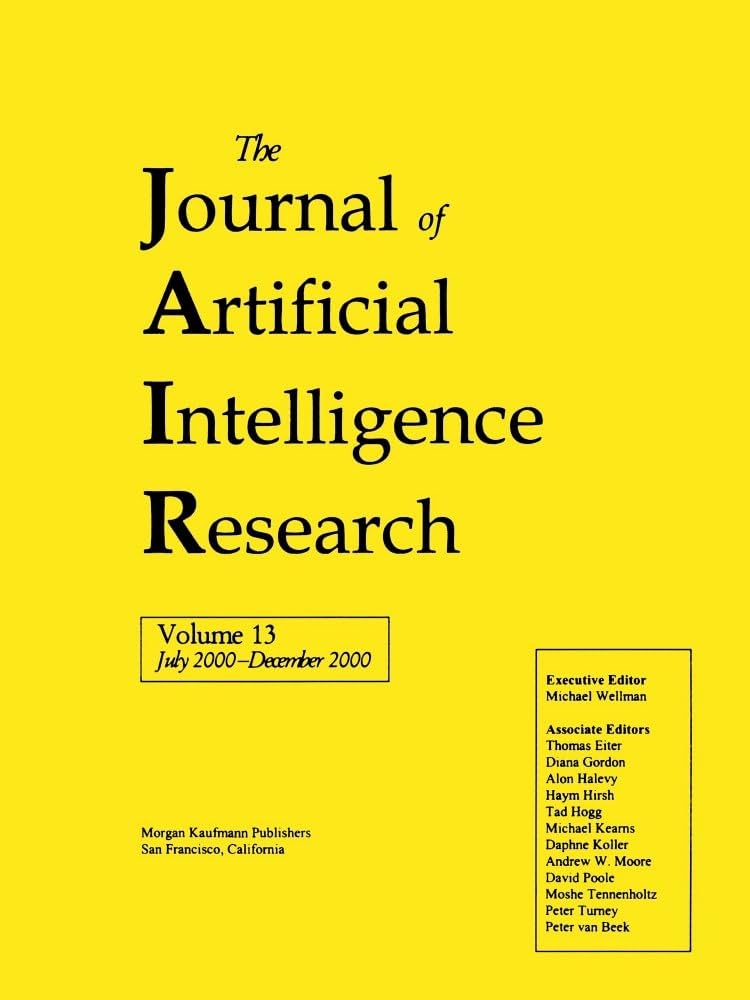How to Tell Easy from Hard: Complexities of Conjunctive Query Entailment in Extensions of ALC
IF 4
3区 计算机科学
Q2 COMPUTER SCIENCE, ARTIFICIAL INTELLIGENCE
引用次数: 0
Abstract
It is commonly known that the conjunctive query entailment problem for certain extensions of (the well-known ontology language) ALC is computationally harder than their knowledge base satisfiability problem while for others the complexities coincide, both under the standard and the finite-model semantics. We expose a uniform principle behind this divide by identifying a wide class of (finitely) locally-forward description logics, for which we prove that (finite) query entailment problem can be solved by a reduction to exponentially many calls of the (finite) knowledge base satisfiability problem. Consequently, our algorithm yields tight ExpTime upper bounds for locally-forward logics with ExpTime-complete knowledge base satisfiability problem, including logics between ALC and µALCHbregQ (and more), as well as ALCSCC with global cardinality constraints, for which the complexity of querying remained open. Moreover, to make our technique applicable in future research, we provide easy-to-check sufficient conditions for a logic to be locally-forward based several versions of the on model-theoretic notion of unravellings. Together with existing results, this provides a nearly complete classification of the “benign” vs. “malign” primitive modelling features extending ALC, missing out only the Self operator. We then show a rather counter-intuitive result, namely that the conjunctive entailment problem for ALCSelf is exponentially harder than for ALC. This places the seemingly innocuous Self operator among the “malign” modelling features, like inverses, transitivity or nominals.如何分辨难易:ALC扩展中连词查询蕴涵的复杂性
众所周知,在标准语义和有限模型语义下,ALC的某些扩展的合取查询蕴涵问题比其知识库可满足性问题在计算上要困难,而其他扩展的复杂性是一致的。我们通过识别一类广泛的(有限)局部前向描述逻辑,揭示了这种划分背后的统一原则,为此我们证明了(有限)查询蕴涵问题可以通过将(有限)知识库可满足性问题的调用简化为指数级多来解决。因此,对于具有ExpTime-complete知识库可满足性问题的局部前向逻辑,包括ALC和µALCHbregQ之间的逻辑(以及更多),以及具有全局基数约束的ALCSCC,我们的算法产生了严格的ExpTime上界,查询的复杂性仍然是开放的。此外,为了使我们的技术适用于未来的研究,我们提供了易于检查的充分条件,使逻辑能够基于非模型理论的解开概念的几个版本进行局部前向。与现有的结果一起,这提供了扩展ALC的“良性”与“恶性”原始建模特征的几乎完整的分类,只遗漏了Self算子。然后,我们展示了一个相当反直觉的结果,即ALCSelf的合取蕴涵问题比ALC的难得多。这将看似无害的Self操作符置于“恶意”的建模特征中,如逆、及物性或标称。
本文章由计算机程序翻译,如有差异,请以英文原文为准。
求助全文
约1分钟内获得全文
求助全文
来源期刊

Journal of Artificial Intelligence Research
工程技术-计算机:人工智能
CiteScore
9.60
自引率
4.00%
发文量
98
审稿时长
4 months
期刊介绍:
JAIR(ISSN 1076 - 9757) covers all areas of artificial intelligence (AI), publishing refereed research articles, survey articles, and technical notes. Established in 1993 as one of the first electronic scientific journals, JAIR is indexed by INSPEC, Science Citation Index, and MathSciNet. JAIR reviews papers within approximately three months of submission and publishes accepted articles on the internet immediately upon receiving the final versions. JAIR articles are published for free distribution on the internet by the AI Access Foundation, and for purchase in bound volumes by AAAI Press.
 求助内容:
求助内容: 应助结果提醒方式:
应助结果提醒方式:


